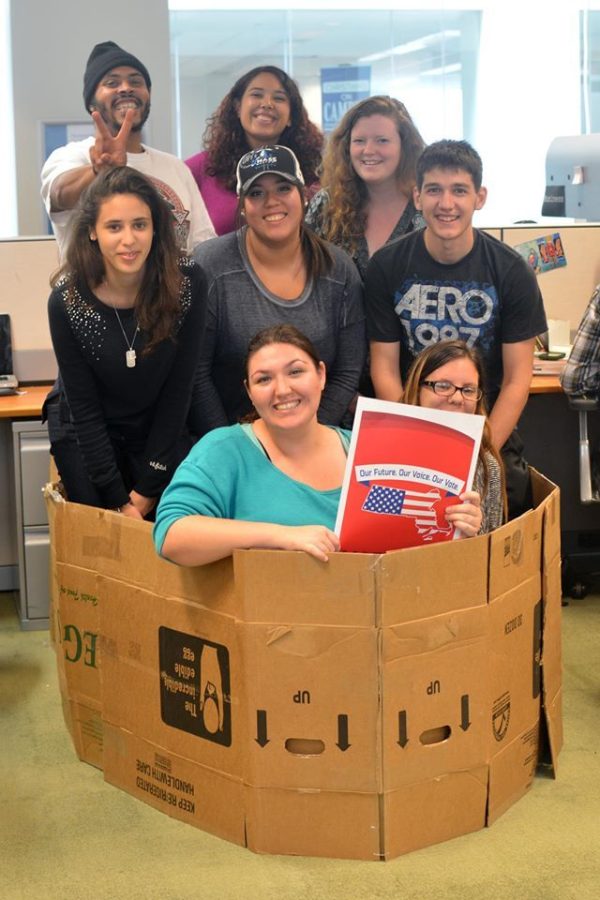MassPIRG has had a busy few months. The nonprofit organization, which is a Massachusetts-based subset of the Public Interest Research Group, has been working hard on a number of issues ranging from bottle recycling policies to GMO food-labeling procedures. PIRG is known to have taken on a host of corporate giants over the years, and shows no imminent signs of slowing down. The group relatively recently turned its attention to McDonald’s, as well as a host of other food providers’, over-treatment and over-medication of healthy animals with antibiotics. According to a statement on MassPIRG’s website, up to 70 percent of all antibiotics used in the United States are used on livestock. A few weeks ago, after efforts on the part of PIRG and other like-minded individuals and organizations, McDonald’s finally caved to some demands and pledged to phase out the use of chicken raised with antibiotics over the next two years.
To further understand the importance and nuances of the issue, I sat with Allyson Presskreischer of University of Massachusetts Boston’s chapter of MassPIRG to ask a few questions.
So what exactly is the issue?
This campaign we’re working on has to do with the overuse of antibiotics in factory farms. The root of the problem is that antibiotics are being given to healthy animals on factory farms, which is leading to antibiotic resistant bacteria.
What does that mean?
Now, common infections like strep throat, ear infections—things that we’ve all had before—which have been responsive to antibiotics in the past are no longer being cured as easily with the same antibiotics.
So this antibiotic treatment of animals affect people?
Yes, when we eat that meat of animals that have been treated with these antibiotics. The bacteria also travels through the air and goes into the water, so even if you’ve not been eating the meat you could still be affected. For example, I’m a vegetarian but I’m still affected by this antibiotic resistant bacteria.
How long has this been an issue?
Factory farms have been operating like this for years, and MassPIRG has been working on this campaign since January. We’re targeting McDonald’s specifically as the largest supplier of beef in the country.
You’ve made some progress on that front; how did you go about that?
MassPIRG did a series of social media campaigns, we had photo petitions where we had students and community members take photos with signs that said something to the effect of “McDonald’s, go antibiotic-free” or “I’m hungry for meals raised without antibiotics,” things like that, then we tweeted them out. McDonald’s was actually following our #McDonaldsSaveAbx on Twitter, which was exciting. So after a lot of pressure from student groups all over the country they finally agreed to switch over their chicken products to become antibiotic free over the next two years.
So McDonald’s beef is still not antibiotic free?
They haven’t made any moves on beef and pork, so we’re trying to encourage them to make that switch because, as we all know, McDonald’s is well known for their beef products, so our target is to get those to be antibiotic free.
Have any other big food providers followed McDonald’s Lead?
Chick-Fil-A switched over. Panera Bread has been antibiotic free for a while now. So is Chipotle. Be Good, a Massachusetts based company, has also made the switch. Due to the commercial size of McDonald’s and how prominent they are in that market, we’re hoping to see a chain reaction as a result of them switching to antibiotic-free meat.
What do the stats say about the effects of antibiotic resistance?
As of now, according to the Center for Disease Control and Prevention, each year at least 2 million Americans get sick from antibiotic resistant bacteria and about 23,000 Americans die as a result every year. So it’s a pretty big public health crisis that isn’t getting talked about a lot. So we want to raise awareness about the fact that these were previously curable diseases.
Many view the alternative to non-antibiotic-free livestock as very expensive. What would you say to convince them that it’s worth the possible extra cost?
It’s the suppliers to food providers whom are directly using antibiotics on livestock, so the extra cost might come from there. That being said, I think it’s really a matter of your health; would you rather pay a couple cents more or would you rather die from strep throat?
What next?
Since we’ve seen a partial victory with McDonald’s, our campaign is now going to also focus on Subway. We will keep encouraging McDonald’s to go completely antibiotic-free, and we will encourage Subway to do the same. They employ the branding “Eat Fresh,” so we want to encourage them to put out products that really stand by that.
What can others do to help? Like UMass Boston students, for example.
I think that, in keeping with our efforts, social media would be a good avenue. The #McDonaldsSaveAbx on Twitter is one way to go. The more we can publicize the fact that we as consumers care about the issue, the bigger our impact can be. Numbers show that millennials are the group that purchase McDonald’s the least because we’re much more aware of our health and fitness and much less willing to consume food that’s detrimental to our well-being. That’s taken a bit out of their revenue and they’re hurting for consumers our age. If we show them that we might be more inclined to patronize them if they have healthier foods, then that may have an impact.
Allyson Presskreischer is the Save Antibiotics grassroots coordinator of UMass Boston’s chapter of MassPIRG, as well as a board member of the statewide organization. She is a social psychology major in her senior year at UMass Boston.





















































